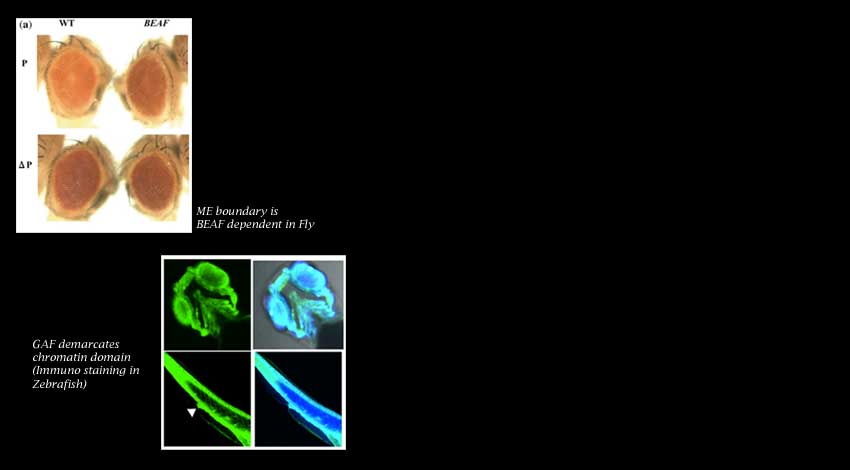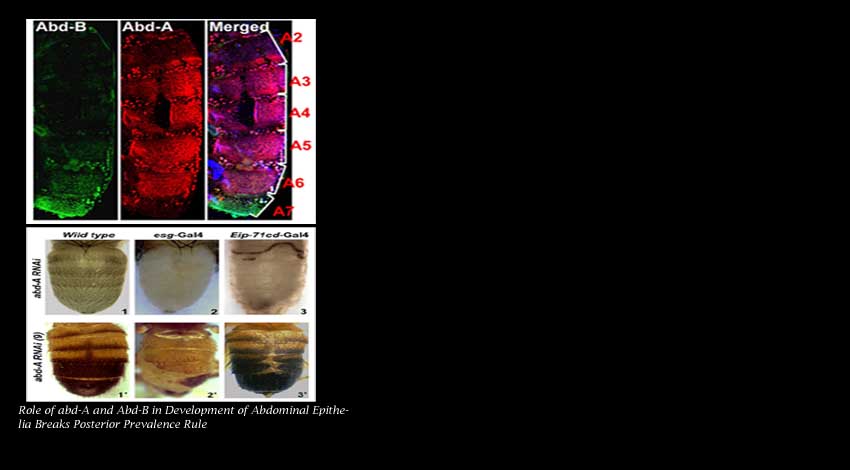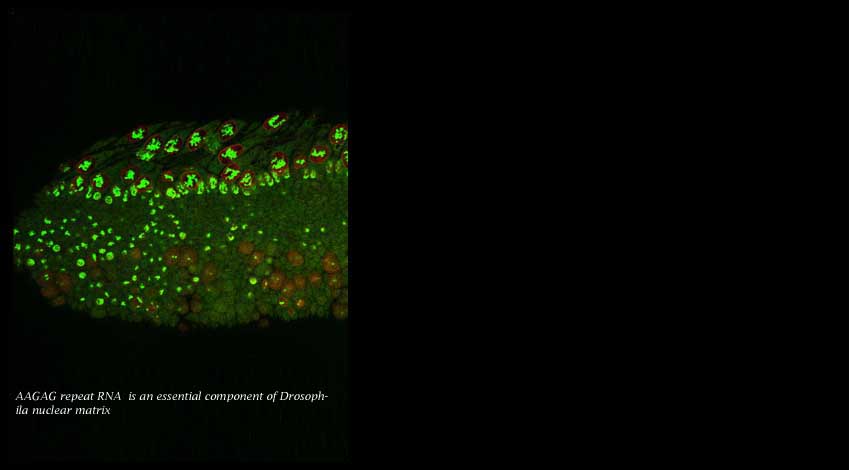Higher eukaryotes have larger genomes but not, proportionately, more number of genes. It is, therefore, more sophisticated regulation of genes, and not the number of genes, that has contributed to the evolution of complexity.
Our lab is interested in understanding how information is encoded in genomes and expressed in regulated manner during development and its interaction with the environment. We explore regulation of genes in the context of genome organization that involves higher order chromatin structure and epigenetic mechanisms; under the following three major themes: |












